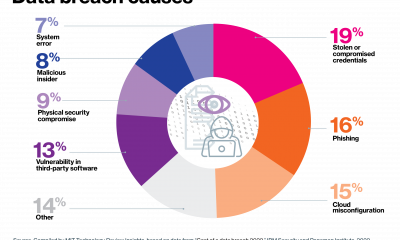Cannabis has considerable potential to treat many chronic illnesses, including epilepsy, glaucoma, Alzheimer’s, multiple sclerosis and fibromyalgia, as well as mental health disorders such as PTSD. Due to its therapeutic properties, medical cannabis is enjoying increasing acceptance within the medical field. The market continues to rise at unprecedented rates and the number of people with access to life-changing care is expanding. Recent research shows that registered MMJ patients increased roughly 4.5-fold between 2016 and 2020.When it comes to choosing the medical cannabis product that’s right for you, however, you should discuss your options with a professional. There is a wide range of products on the market, and depending on your condition, what product is best for you will vary. For instance, if you’re treating nausea, edibles are probably not the best option, and switching to a different consumption method may be in your best interest.
This is where Veriheal can help. Veriheal is a healthcare technology platform that makes it easy for you to get your medical marijuana card and connect with a doctor that can recommend the best product(s) for your ailments. They connect patients with their network of physicians to provide marijuana recommendations within their state of residence. Given the predominant use of the virtual space, it is possible to consult the doctor from the comfort of your home. Due to Veriheal’s forward-thinking website, the chain of care—from the patient to the caretaker—can remain unbroken, and patients can avoid unnecessary barriers to accessing care.
Medical VS Recreational Cannabis
While both recreational and medical cannabis can oftentimes be found within the same dispensary, there are fundamental differences related to the potency level, price and policy between the two forms. Both are derived from the same plant, which contains cannabinoids, among other compounds such as terpenes and flavaoids. These substances interact with the body’s endocannabinoid system (ECS), a neuromodulatory system responsible for regulating many physiological and cognitive processes, including immune system activity, mood, memory, appetite, pregnancy, sleep and many more.
Recreational cannabis is typically pricier than its medical counterpart due mainly to higher taxes. Consuming marijuana for purely recreaitonal purposes is only fully legal in 18 states and the District of Columbia, including Alaska, California, Colorado, Illinois, Massachusetts, Michigan, New Mexico, New York, Vermont, Virginia and Washington. Medical cannabis is legal in 39 states and Washington D.C.
The Need for Increased Accessibility for Patients
There are millions of people who could benefit from using medical marijuana. However, social barriers are often an impediment to access. There is still prevalent stigma surrounding cannabis, which means that many individuals never even seek access for fear of ostracization from their communities. Physical distance can also be a considerable hindrance when patients reside in rural areas. Veriheal has practical solutions for all these problems.
While not a clinic, Veriheal provides the platform for medical practitioners to recommmend MMJ prescriptions and connect with patients. The patients also benefit from the company’s technology as it helps them discover an affordable and accessible path to getting a marijuana card. Making sense of the endless lists of laws and regulations that change from state to state can be overwhelming for patients, which is where Veriheal’s help and support are vital parts of the application process.
The growth of the medical cannabis industry over the past few years has been fueled by the efforts toward legalization and expansion of existing MMJ programs. Veriheal has been an essential part of this journey. Their business has grown and developed significantly over the past five years, which has helped establish their reputation as leaders in the industry and through providing reliable, high-quality services. Veriheal has helped many patients access life-changing care through its facilities and technology. They aim to advance and improve as an organization to bring ongoing, premium care to an even larger number of individuals.
Why Get a Medical Marijuana Card?
There’s a lot of documentation necessary to apply for a medical cannabis card. If you work a full-time job, have children, are a university student, are disabled, or are a caretaker, the process can seem nearly impossible. Apply for a card through Veriheal to avoid this ordeal and save yourself the headache. You don’t have to leave your home in order to do so. Get on Veriheal’s platform whenever it is convenient for you and connect with a physician in your area. If you’re not approved, you get a complete refund.
There are many benefits to getting a card, including:
-
Saving money: Despite the initial costs of application and renewal fees, a card pays off in the long term. MMJ is not taxed in the same way as recreational cannabis, and the potency levels are different, meaning that patients can purchase less of the product and use it for a longer time.
-
Wider product range: When you work with professionals, you gain access to high-quality products that provide precise symptom relief. You won’t have to get higher doses of low-quality cannabis to enjoy its therapeutic benefits. The increased attention to quality and adherence to regulatory requirements means that you’re sure to get a safe, effective product.
-
Legal protection: This is one of the aspects of top importance. Depending on the state in which you live, recreational-use marijuana may be illegal, which can make you vulnerable to legal problems for your medical use of cannabis. Having an MMJ card affords the protection necessary to keep you safe from heavy fines and even jail time. It can also be useful in case you encounter trouble with your employer.
If you’re interested in trying medical marijuana, reach out to Veriheal and let them assist you through the process. They have made it their mission to inform the public on the uses, effects and safety of marijuana. Accessibility and education are their main priorities and they strive to help current or prospective patients make informed decisions every day.













